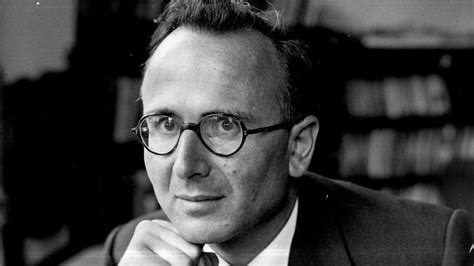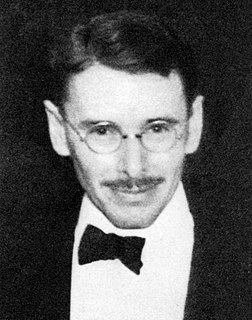A Quote by Swami Vivekananda
If the Absolute becomes limited by the mind, It is no more Absolute; It has become finite.
Related Quotes
There are similarities between absolute power and absolute faith: a demand for absolute obedience, a readiness to attempt the impossible, a bias for simple solutionsto cut the knot rather than unravel it, the viewing of compromise as surrender. Both absolute power and absolute faith are instruments of dehumanization. Hence, absolute faith corrupts as absolutely as absolute power.
Absolute knowledge is only possible when you know the Absolute Truth and to have the Absolute Truth you have to go to the Absolute Being within you which is your Spirit. So, it gives you the truth, it gives you the collective consciousness. The main thing is that you become extremely peaceful personality, you become peace, you emit peace.
Dhyan means meditation. Meditation means awareness, watchfulness, a silent witnessing of all the processes of the mind. And the magic of watching is that as your watchfulness deepens, the mind starts evaporating. When the watchfulness is absolute mind becomes nil, a zero. And the disappearance of the mind gives you clarity, absolute clarity, transparency; you can see through and through, you become a mirror. And then life is reflected as it is - not according to any doctrine, not according to the Bible or the Koran or the Gita but as it is. And to know life as it is, is to know god.
You can't relate to an absolute or it wouldn't be absolute, it would be relative. On an intellectual level, that's easy. However, you hear theologians in the theistic traditions talk about absolute God, and I saw God, or God spoke; speaking, being seen, these are all relational things. So what is absolute about such a being, wouldn't actually be absolute.
There is no such thing as absolute truth and absolute falsehood. The scientific mind should never recognise the perfect truth or the perfect falsehood of any supposed theory or observation. It should carefully weigh the chances of truth and error and grade each in its proper position along the line joining absolute truth and absolute error.
What do believers in the Absolute mean by saving that their belief affords them comfort? They mean that since in the Absolute finite evil is ‘overruled’ already, we may, therefore, whenever we wish, treat the temporal as if it were potentially the eternal, be sure that we can trust its outcome, and, without sin, dismiss our fear and drop the worry of our finite responsibility. In short, they mean that we have a right ever and anon to take a moral holiday, to let the world wag in its own way, feeling that its issues are in better hands than ours and are none of our business.
This overcoming of all the usual barriers between the individual and the Absolute is the great mystic achievement. In mystic states we both become one with the Absolute and we become aware of our oneness. This is the everlasting and triumphant mystical tradition, hardly altered by differences of clime or creed.
When you put relative and absolute truth together and they become one unit, it becomes possible to make things workable. You are not too much on the side of absolute truth, or you would become too theoretical. You are not too much on the side of relative truth, or you would become too precise. When you put them together, you realize that there is no problem.
If there is no absolute moral standard, then one cannot say in a final sense that anything is right or wrong. By absolute we mean that which always applies, that which provides a final or ultimate standard. There must be an absolute if there are to be morals, and there must be an absolute if there are to be real values. If there is no absolute beyond man's ideas, then there is no final appeal to judge between individuals and groups whose moral judgments conflict. We are merely left with conflicting opinions.



































